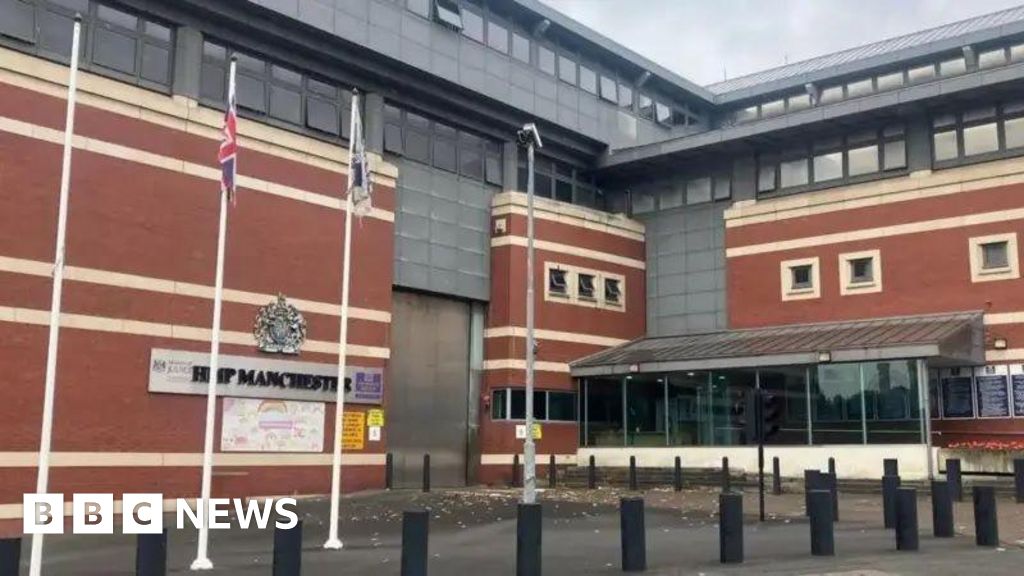
The use of drones to smuggle drugs and weapons into the “most violent” prison in England and Wales is a “threat to national security”, inspectors have warned.
A report into HMP Manchester found “extremely dangerous” inmates were burning holes into “supposedly” secure windows to receive illicit deliveries weighing as much as 7kg (15.4 lb).
His Majesty’s Chief Inspector of Prisons Charlie Taylor said “significant investment” was needed because, in effect, police had “ceded airspace” above jails to crime gangs.
A Ministry of Justice spokesperson said the incoming Labour government had “inherited prisons in crisis – overcrowded, with drugs and violence rife”.
‘Highly alarming’
The spokesperson added: “We are gripping the situation by investing in prison maintenance and security, working with the police and others to tackle serious organised crime, and building more prison places to lock up dangerous criminals.”
HMP Manchester’s problems with drugs, violence, and rats were first raised by Mr Taylor in an urgent “notification for improvement” following an unannounced inspection between September and October.
Prisons Minister Lord James Timpson responded by announcing a series of measures to improve security.
Full details of that damning autumn inspection have now been published alongside the warning about drones.
About 220 drone sightings were observed in the 12 months to October 2024, which inspectors said was “the highest across all prisons in England and Wales”.
Mr Taylor said their use in the supply of drugs, phones, and weapons was “highly alarming” and compromised the safety of staff, prisoners and ultimately the public.
 HMIP
HMIPInspectors found efforts to stop drones being flown into the jail, which is close to Manchester city centre and first opened in 1868, had been hampered by “poor physical security”.
These include “slow action” by the prison service to repair and install secure windows, failing CCTV, and a failure to replace damaged netting over exercise yards.
Prisoners had regularly found ways to melt window panes to create space for the packages, which could then be passed on to other cells and wings, the report found.
There were also accounts from contractors and their families who said they had been threatened by some prisoners in cells where new, more secure, windows were being installed.
The inspectors’ report also revealed that about 39% of all prisoners in the jail had tested positive for drugs, a rate among the “the highest in England and Wales”.
Inspectors were told organised crime groups with “international connections” had arranged the drone drops.
They also flagged concerns about staff corruption.



